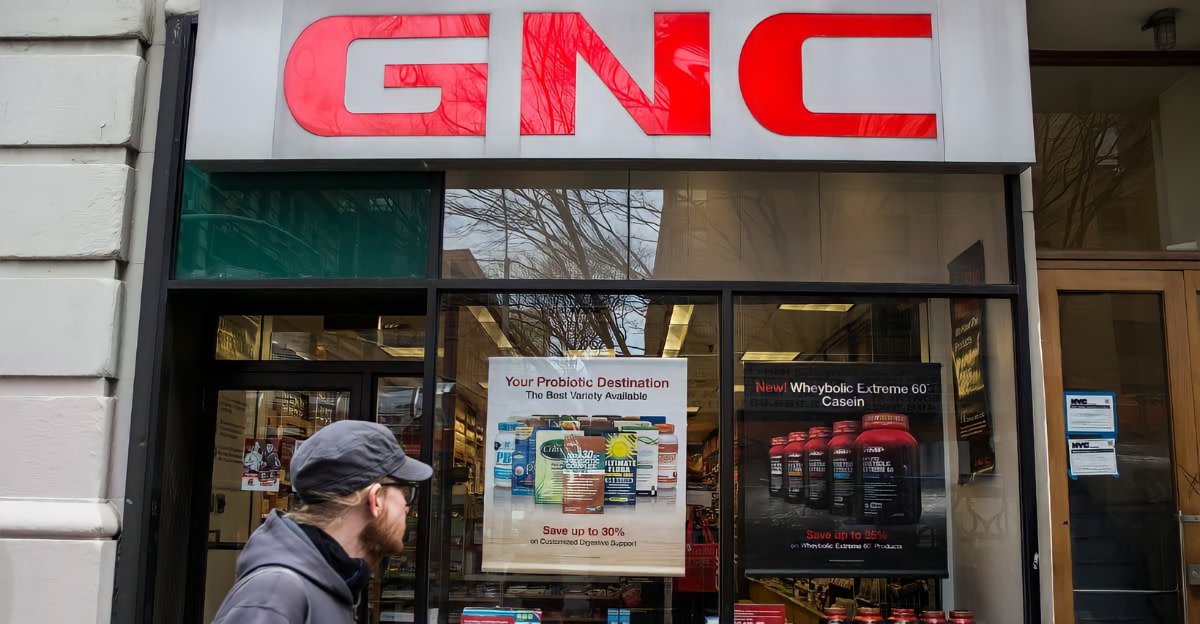
It may appear innocent that a vitamin and supplement shop would maintain an American military base presence, but owning such stores is a weakness. GNC, a Pittsburgh health-food shop, was initially launched by a company owned by the Chinese state-run Harbin Pharmaceutical Group, a firm with CCP ties.
This ownership exposes a foreign competitor to direct access to military communities, including personal information most sensitive to servicemembers and their families. Having such a retailer on bases with tens of thousands of troops is a critical national security concern. It is not just a commerce issue; it’s about keeping America’s defense establishment away from tainted influence.
The Military Installation Retail Security Act

Sen. Ted Budd, Tom Cotton, Rick Scott, and Rep. Pat Harrigan have sponsored the Military Installation Retail Security Act to prohibit enemy country-owned or controlled firms from operating retail stores on US military bases.
The bill calls for a complete review of all retail stores on military bases for foreign ownership and to prevent malign actors from using these beachheads.
The law aims to counteract the exploitation of private information and surveillance risk posed by foreign-owned businesses based in military communities for military security and readiness.
The Hidden Dangers of Data Manipulation on Military Bases

Retail outlets on military bases acquire more than they sell, creating massive amounts of personally identifiable information, including name, payment information, and purchasing trends, that agencies will use for intelligence collection.
When such data becomes the possession of a foreign adversary like the CCP, it becomes a surveillance vector that can also breach operational security. This is especially applicable to military personnel likely to purchase health and fitness products related to physical readiness that can activate sensitive health and lifestyle data. The threat extends beyond privacy to possible manipulation or targeting of members.
GNC Expands to Military Bases to Gain Strategic Ground

Since its purchase by Harbin Pharmaceutical Group in 2020, GNC has rapidly expanded to U.S. military installations at over 80 locations on bases such as Fort Bragg, Andrews Air Force Base, and Patrick Space Force Base.
Fort Bragg hosts around 53,700 servicemembers, almost 10% of the U.S. Army. The prevalence is not an accident; it gives the CCP a foothold in American military infrastructure.
What History Reveals About Outside Powers in Vulnerable Areas

History has cautionary precedents whereby foreign powers utilized commercial presence in sensitive areas to gather intelligence or to exert influence. During the Cold War, firms in Soviet-aligned countries operated undercover as spying operations throughout Western nations.
Acquiring foreign land near former states of military bases also metaphorically brought about subjugation and spying again. In the case of GNC, the methodical and strategic use of economic infiltration supports influence exertion and explicitly calls for caution and legislation.
Why Some Experts Believe the Danger Is Exaggerated

Some argue that GNC is under strict U.S. oversight and has no direct access by the Chinese parent company to sensitive data. CFIUS approved the acquisition after thoroughly screening it. GNC practices Department of Defense security measures and employs contractors that have passed DoD screening and certification to protect customer data.
This view discounts risks from indirect data leakage, potential supply chain compromise, and future policy changes by China to compel data sharing. Allowing a CCP-owned company access to military communities is a national security risk.
How Military Life Shapes the Mental Health of Troops and Families

Beyond legitimate security risks, it not only protects data but also protects soldiers’ mental health, as well as military preparedness. Military readiness is essential, and as geopolitical competition is increasing, it is necessary to lock down all aspects of military infrastructure, including retail spaces.
Congress must act swiftly to close this security loophole before it is taken advantage of further. The immediate effects of loss of trust could make a soldier or other service member feel exploited or surveilled, diminishing morale and operational capacity.
Psychological resilience is essential to military efficacy, and adversaries’ perceived intrusion into everyday life can seed doubt and terror. Such an insidious instrument of influence can undermine the will to fight and cohesion that national defense requires, and the prohibition is not just a security but a moral imperative.
Economic Nationalism Meets National Security

The GNC fiasco is a poster child for the intersection of national security and economic globalization. Free markets encourage foreign investment, but to permit adversarial state-owned entities to profit from military communities is a red line.
The event supports conventional wisdom that economic relations will lead to peace and that economic beachheads are much easier to exploit for strategic advantage. The Military Installation Retail Security Act is a welcome recalibration of the equilibrium between security and profit motive, in a potentially sensitive ecosystem of military installations.
Exploring the Ripple Impact as a Blueprint for Change

If this bill passes, it could embody a precedent for investigating and restricting foreign-owned businesses in other areas of significance, such as technology, infrastructure, and healthcare, with national security ramifications.
It could be a jumping-off point for allies to investigate foreign commercial presence on their bases, building a coalition against malign economic influence. However, it could exacerbate relations with China, inviting retaliatory measures. Yet the overall benefit in protecting military communities from insidious influence outweighs such risks.
Protecting the Integrity of America’s Military Communities

It is not simply a business matter but a national security threat that China-owned GNC stores are on American military bases. The Military Installation Retail Security Act closes a yawning weakness by removing hostile economic beachheads that enable surveillance and influence operations.
Not only does it safeguard data, but it also protects the mental health of soldiers and the integrity of military preparedness. Given geopolitical competition is ramping up, it is now more important than ever to lock down all facets of military infrastructure, including retail areas. Congress must act swiftly to close this security loophole before it is taken advantage of further
Discover more DIY hacks and style inspo- Follow us to keep the glow-up coming to your feed!

Love content like this? Tap Follow at the top of the page to stay in the loop with the latest beauty trends, DIY tips, and style inspo. Don’t forget to share your thoughts in the comments — we love hearing from you!